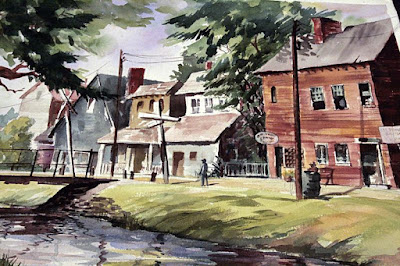Homework for September 19
Read "Slavery's Pleasant Homes" by Lydia Maria Child (1843) with a pencil. Try to mark instances where you afectively relate to the text (because it gives you feelings of pleasure/displeasure, bewilderment, identification...). Identify one instance and the feeling(s), then attempt to decompose it through Close Reading.
Things to look for:
- what contributes to theme(s) and structure;
- what hints at (or gets illuminated by) the context of the author’s work and time;
-subject of the enunciation;
- point of view and effect upon the reader/addressee / alignment and allegiance of narrators, characters, and readers;
- descriptive or lyric or argumentative, etc. manner,
- language tropes / devices
* figures of speech (metaphor and metonymy)
* symbols / lexical relations pointing to semantic clusters
* innovation / surprising markers, or pattern traces within the author’s work
* collocations
* deictics
- allusion
Frontispiece from Lydia Child’s 1833 political tract, An Appeal in Favor of That Class of Americans Called Africans.
Things to look for:
- what contributes to theme(s) and structure;
- what hints at (or gets illuminated by) the context of the author’s work and time;
-subject of the enunciation;
- point of view and effect upon the reader/addressee / alignment and allegiance of narrators, characters, and readers;
- descriptive or lyric or argumentative, etc. manner,
- language tropes / devices
* figures of speech (metaphor and metonymy)
* symbols / lexical relations pointing to semantic clusters
* innovation / surprising markers, or pattern traces within the author’s work
* collocations
* deictics
- allusion
Frontispiece from Lydia Child’s 1833 political tract, An Appeal in Favor of That Class of Americans Called Africans.



Response by Zachary Fagan
ResponderExcluir“Not one was found to tell how the slave’s young wife had been torn from him by his own brother, and murdered with slow tortures. Not one recorded the heroism that would not purchase life by another’s death, though the victim was his enemy. His very name was left unmentioned; he was only Mr. Dalcho’s slave!”
In this passage from “Slavery’s Pleasant Homes” by Lydia Maria Child, as a reader I had a particular feeling of disgust in the way that George and Rosa were treated in their death, created by the elements that are used by the author, and the perception of the narrator. Anaphora is utilized with the words ‘not one’ in order to accentuate the forgottenness of the slaves and the lives they led. By using such words as ‘torn,’ ‘murdered,’ ‘tortures,’ and ‘victim,’ a very dark tone is invoked, once again to elicit a response from the reader. Through italicizing the words ‘name’ and ‘slave,’ there is a clear connection made between the two. In the eyes of the world, these slaves don’t have names, as they are looked at as simply things that you own, undeserving of a title, not actual human beings. By ending this passage, and more so the entire story with an exclamation point, the narrator displays their own anger, as well as the absurdity of the papers characterization of both George and Rosa. In closing with this paragraph, the narrator aims to provoke thought within the reader about the simplicity of names, and how important they are in society. Without names, individuality and personality is taken away. Here, Rosa and George’s entire existences seems to be erased, left with no legacy of their own.
Response by Rebecca Hollister
ResponderExcluir“No voice praised him for the generous confession. They kicked and cursed him; and hung up, like a dog or a wolf, a man of nobler soul than any of them all.”
This particular part of the story, along with many others, made me feel a deep disgust and sadness for George and his situation. While George is not a flawless character, his flaws are definitely not worth a brutal hanging. The first sentence serves to remind the reader what may have happened had it been a white person or a non-slave giving this confession: here is the possibility that were it a different man, the man would be praised, or at the least, possibly not punished as severely. George, however, is a slave, and is therefore seen as subhuman and an extremely likely party to have committed the murder. Though his confession is generous as the sentence describes, it doesn’t change anyone’s biased opinion of George. The repeated use of detailed verbs such as “kicked,” “cursed,” and “hung” also contribute to feelings of disgust. The simile of “like a dog or a wolf” serves to exemplify both the helplessness of George in this situation and his innocence. The final phrase, “a man of nobler soul than any of them all” is a poignant conclusion to a horrific scene--this man with such a noble soul has been brutally killed. Though this excerpt is only two sentences, literary elements used by Child create a strong effect.
"Not one was found to tell how the slave's young wife had been torn from him by his own brother, and murdered with slow tortures. Not one recorded the heroism that would not purchase life by another's death, though the victim was his enemy. His very name was left unmentioned; he was only Mr. Dalcho's slave."
ResponderExcluirThis paragraph from the story made me angry at the unjust nature of George's treatment and death. His death shows how unfairly slaves were treated especially how he was killed for the same thing Frederic Dalcho had done. Despite the fact he admitted to it and saving one of his enemies lives he was shown no respect and treated as a cold blooded murderer. Even though Dalcho had tortured and murdered George's wife he most likely would not have had any consequences unlike George who was treated like and animal and hung. It wasn't even mentioned that Frederic Dalcho had done that at all. He was only referred to as Dalcho's slave who murdered his owner. The words "name" and "slave" were italicized which to me had a strong effect on the ending of the story. Your name is the basis of your identity and it is stressed how no one even mentioned George's name he was only referred to as "slave". This shows how they almost don't even think of George as a person, but the property of his owner.
“He watched her, as she pursued her work, until she felt uneasy beneath his look. From time to time, he glanced at his young wife. She, too, was certainly very lovely; but the rich, mantling beauty of the slave had the charm of novelty.”
ResponderExcluirThis part of “Slavery’s Pleasant Homes” catches my attention because of the language, the meaning of the language, and the application of the language. The author Lydia Maria Child describes this moment as one of pleasure for the master Frederic Dalcho; this is the moment when he looks upon Rosa and admires her beauty. While at first, this seems like something positive, he looks at her not as another person, but rather as an object he can control and possess. The language in this part of the story, however, is misleading: “rich,” “mantling,” “beauty,” “charm,” and “novelty” are all pleasant words with positive connotations. When these words apply to a human, however, they fetishize the person. In this case, Frederic Dalcho fetishizes Rosa, referring to her as his slave, comparing her to a “decorative piece,” and describing her as a “novelty,” as if she were a sample of something he had not yet tested. This passage elicits feelings of uneasiness and fear in me, as I read about the objectification of another woman, much like how Dalcho’s stares elicit feelings of uneasiness and fear in Rosa. The language Child uses in this passage stands as a metaphor for the feelings the characters in the story experience. An instance that should be pleasurable and complimentary reveals itself as an instance of discomfort and objectification, just as Child applies words that typically have positive connotations to a situation with negative connotations.
“The master looked up at that moment, and at once comprehended the significance of that beaming expression. He saw that it spoke whole volumes of mutual, happy love; and it kindled in him an unholy fire. He has never before realized that the girl was so very handsome” (239).
ResponderExcluirI was especially angered by this passage from “Slavery’s Pleasant Homes,” which reveals Frederic Dalcho’s callousness and selfishness, the driving force behind the tragedy that befell the slaves. Lydia Maria Child begins by showing how Dalcho clearly knew that Rosa was already in love with George - the use of “at once” emphasizes the immediacy with which Dalcho understood the unmistakable affection between the lovers. As “he saw that it spoke whole volumes of mutual, happy love,” Child uses a metaphor to illustrate the greatness of their love story as one that could span and is worth recording in a series of books -and yet Dalcho had not even bothered to read them, but simply “saw” them, which highlights his lack of care and empathy, as well as his position as a kind of intruder. Child’s reference to Dalcho as “the master” instead of his name, however, suggests that Dalcho believes his political and economic ownership over Rosa is more important and valid that George’s emotional one.
I got the sense that Dalcho largely desired Rosa only because she was already with another man, for it was her “beaming expression” that “kindled in him an unholy fire.” While Rosa’s love for George beamed, shining brightly and creating its own kind of innocent beauty (further emphasized by Child’s use of the simplistic adjective “happy”), Dalcho’s desire took the form of an “unholy fire,” a destructive and wicked force. In particular, the word “unholy” demonstrates how his will to steal another man’s wife is ultimately sinful (made even clearer when we remember that in this scene, Rosa wears a golden cross around her neck). What’s worse is that Dalcho’s interest in Rosa is purely shallow, focusing only on her physical beauty and novelty.
-Narisa Buranasiri
“Unfortunately, the master looked up at that moment, and once comprehended the significance of that beaming expression. He saw that it spoke volumes of mutual, happy love; and it kindled him in an unholy fire. He has never before realized that the girl was so very handsome.”
ResponderExcluirRosa’s beauty is the driving point of this story. It is the single motive behind each significant action and it contributes to the story’s overall theme of injustice. In this passage, Frederic notices Rosa’s remarkable physical nature, and this sends him into a rage. Whether a result of jealously or the feeling of unreciprocated love, Frederic’s reaction to Rosa’s “beaming expression” causes a chain of events that result in the deaths of both Rosa, George, and himself. The collocation of “mutual, happy love” is significant because it is intangible. While Frederic can only see Rosa’s physical appearance, he can feel far more. Her joyous face is a symbol of her passionate love affair with George. Once this is revealed to Frederic, he is immediately overcome with raw emotion, caused seemingly by the recognition of what he cannot have. This is described through metaphor, as Rosa’s beauty “kindled him in an unholy fire.” “Fire” represents the extent of his fury, while “unholy” puts his emotional state in a religious context. It is quite possibly his religious background that causes his fury in this moment. He might be punishing himself for having feelings of attraction to a slave, something that may go against his belief system. Regardless, Frederic’s unjust punishment of Rosa is driven by the sheer beauty he sees in that moment. After her death, the absence of her beauty enrages George, who subsequently kills Frederic, which ultimately results in his own execution. Thus, Rosa’s beauty is a catalyst to death, which gives a Shakespearean feel to this story, driven by themes of passion, murder, and injustice.